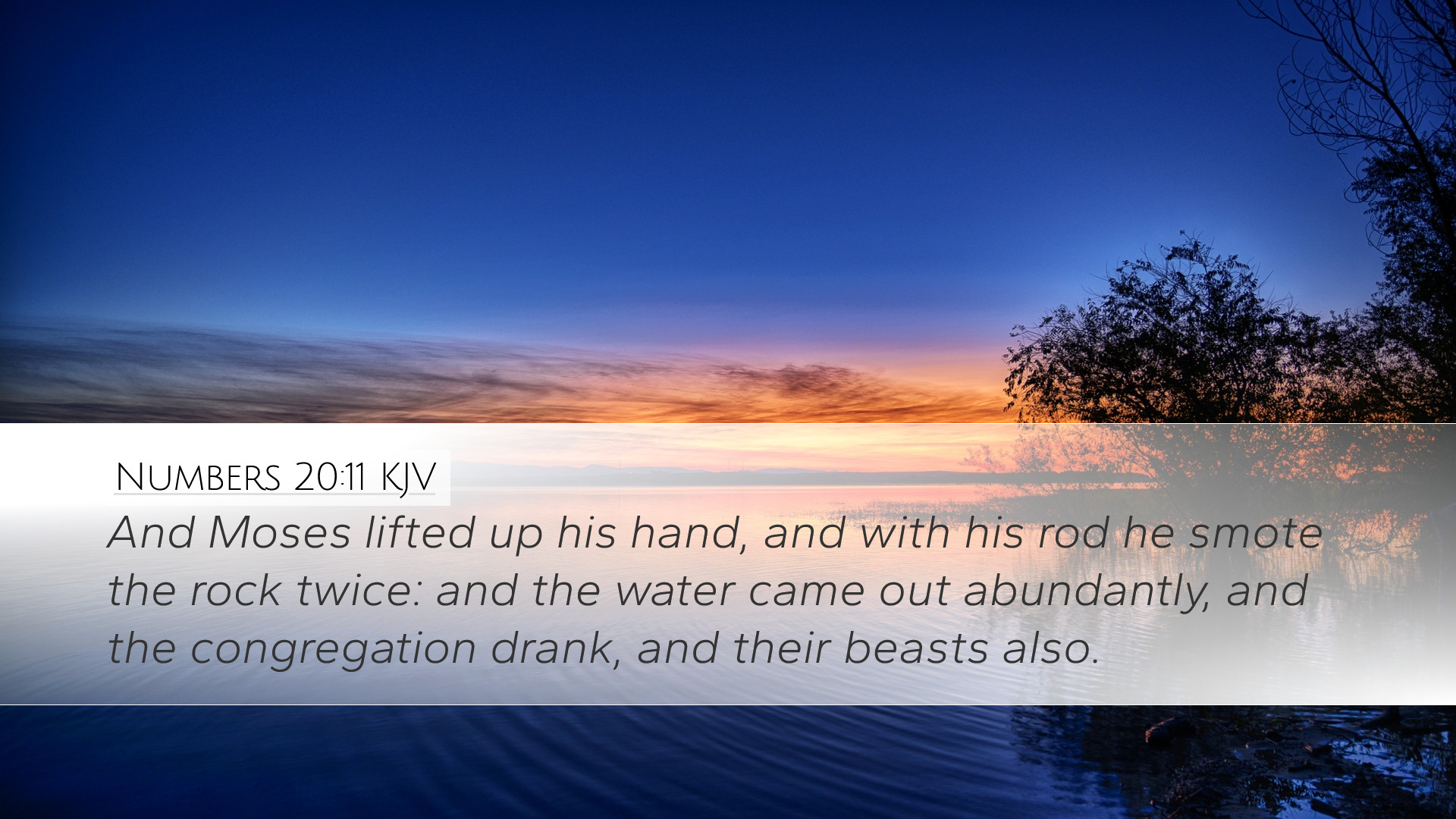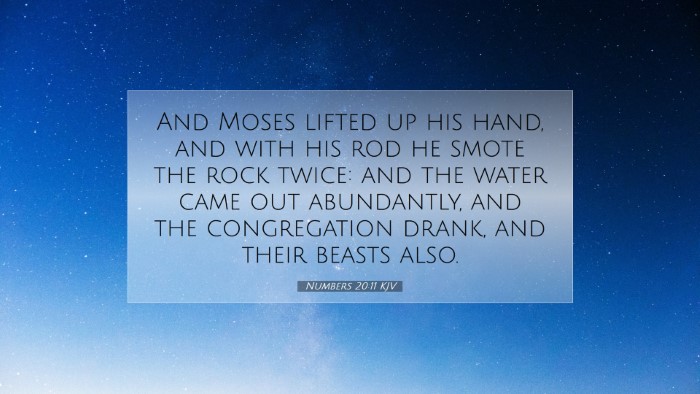Commentary on Numbers 20:11
Bible Verse: "And Moses lifted up his hand, and with his rod he smote the rock twice: and water came out abundantly, and the congregation drank, and their beasts also."
Historical Context
The setting of Numbers 20 is crucial in understanding the significance of Moses' actions. The Israelites find themselves in the wilderness, as they have journeyed through the desert experiencing numerous hardships. This chapter portrays a moment of deep frustration for Moses, who, after years of leadership, faced yet another crisis of water scarcity, an issue that repeatedly challenged the faith of the Israelites.
Theological Insights
In this passage, we observe God's provision, as the striking of the rock leads to an abundant flow of water. This act serves as a profound reminder of God's sustaining grace even in challenging circumstances. Moses' rod, a symbol of authority and divine power, is central to this miraculous event. However, his actions also bring to light the tension between divine command and human response.
Matthew Henry's Commentary
Matthew Henry emphasizes the serious nature of Moses' actions. He interprets the event as an indication of Moses' lapse in faith. When Moses struck the rock, contrary to God's command to simply speak to it, he displayed not only frustration but also a failure to honor God's holiness. Henry believes that this incident underscores a crucial theological point: leaders are held to higher standards and their actions can have significant repercussions.
Albert Barnes' Commentary
Albert Barnes draws attention to the nature of the miracle itself. He notes that while water flowed abundantly from the rock, the means by which it was brought forth (the striking of the rock) reveals much about the obedience required of God's leaders. Barnes suggests that the duality of smiting the rock twice, rather than merely speaking to it as commanded, signified Moses’ impatience and lack of faith. He argues that while God’s grace was still available in abundance, Moses’ actions led to severe consequences, namely, the denial of his entry into the Promised Land.
Adam Clarke's Commentary
Adam Clarke provides a detailed analysis of the significance of the rock itself, linking it to Christ, as expressed in the New Testament (1 Corinthians 10:4). He highlights that the rock, which was to be simply spoken to, symbolizes Christ’s redemptive work and the sufficiency of faith in Him. Clarke states that by striking the rock, Moses misrepresented the character of God, portraying Him as demanding force rather than offering grace. This misrepresentation had a profound impact not only on Moses' leadership but also on the people’s understanding of God’s nature.
Spiritual Lessons
This passage yields several lessons significant for pastoring, teaching, and personal reflection:
- The Importance of Obedience: The narrative clearly illustrates that obedience is crucial in our relationship with God. Leaders must heed divine instructions fully, as any deviation not only affects them but also the body they lead.
- Faith and Frustration: Moses’ frustrations highlight the human condition. In times of distress, it is vital to convey faith rather than allow circumstances to dictate actions.
- God’s Grace in Crisis: Despite human failure, God's grace continued to flow. The availability of water serves as a testament to God's providence, even in the face of disobedience.
- Christ as Our Rock: Reflecting on the typology within this passage, it invites deeper contemplation on Christ's sufficiency in our lives. Just as the rock provided water, Christ provides for our spiritual thirst.
Conclusion
Numbers 20:11 encapsulates a turning point in Moses' leadership and offers timeless insights relevant for all who seek to understand God's character and the dynamics of leadership. The commentary from respected theologians enhances our comprehension of the text and underscores the implications of obedience, faith, and divine provision.
As we delve deeper into this story, may we be inspired to maintain faithfulness to God's commands, recognizing His grace that sustains us in all seasons of life.


